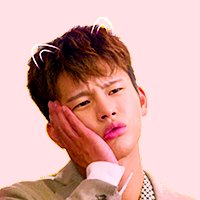
Cette critique peut contenir des spoilers
Some thoughts while watching the last episode...
"It's strange. The fear's receding.""Receding?"
"Like waves receding."
—Kyoko to Shuji in episode 11
I'm obsessed with how when Shuji finds out Kyko is dying he basically makes a decision never to cry, and how his decision because he knows and feels that there's nothing he can do for her (i.e. he can't save her life), even as everything he then goes on to do is for her and her happiness in her last days of living; the one thing he feels he can do is "be strong" for her—and as messed up as that sounds it's actually something Kyoko appreciates because she feels (and even tells him) she can say anything to him—he can take her fear and her sadness and not run away from them, or from her. But she's also told him that she can hear his heart crying. And so it's like she appreciates the effort he's making to do the only thing he feels he can do for her and for his love for her.
You know how in Eriko Kitagawa's Long Vacation (1996, while this drama is from 2000) it's like this sustained moment of arrested development for Sena and Hayama—this period in their lives of waiting and hoping and nothing going the way they want, and so they act like it's a vacation from life until things start working out again? There's some of that going on here, in how Kyoko and Shuji go and hide out from her being sick: they live together and try to lead regular lives as if her death isn't impending. But in actuality, they're running away/not dealing head on with the situation right in front of them is like in fact how they intentionally decide to deal with it. What Kyoko says about fear receding like a wave, it's like when you're surfing and when you're under water and a wave comes at you—you're not supposed to fight it, but just go under it... The idea that when life gets difficult the thing to do is not to fight against it, but to go through it, to sustain the injury and go through it.
These "pause" moments in life is something Kitagawa returns to again and again, I think, bcause it's the same moment she explores in Orange Days (2004), right at the end of college when Kai's no longer a student and he's on the brink of having to become like a contributing member of society and he has to decide what that will look like for him. Kitagawa's interested in those liminal spaces. In Beautiful life it's the time before a death you know is coming, in Long Vacation it's the time after some success that was supposed to lead to brighter things but didn't, and in Orange Days it's the time before having to become a working adult.
*I wrote these thoughts down before finishing the episode, when we then see Shuji open the salon he and Kyoko dreamed of running together, and he goes surfing, and the show ends with a shot of him facing the waves. It's so cool how Kitagawa laid it all out so well, without being overt about it.
Cet avis était-il utile?

Cette critique peut contenir des spoilers
My thoughts, two weeks in
So far My Merry Marriage is much more of a slice-of-life than many of the Kdrama dailies I've watched. It has all the elements other dailies have and that you expect—a central family with a grandma, her middle aged children, and their 20-and-30-year old children; plutocrats who are "just like us"; a mom who abandoned her kid mystery; cohabitation, rich man/poor woman, childhood friends, workplace romance romcom hi-jinks. But it isn't really "about" any single one of those things.Home for Summer (KBS1, 2019) was "about" adopting a kid. The Second Husband (MBC, 2021) was "about" getting revenge for a murdered grandma and kidnapped baby. The Love in Your Eyes (KBS1, 2022; my favorite daily) was "about" Youngyi falling for the man who got her late husband's eyes through organ donation. Suji and Uri (KBS1, 2024) was "about" kids separated from their moms due to makjang shenanigans, finding their moms, and healing.
But two weeks in, My Merry Marriage doesn't really have a central driving premise so much as it has a group of characters who are all going about doing their best and mostly failing to live their lives. The individual stories they're in are recognizable as what makes up a lot of daily dramas, but so far, they're not driving narrative arcs—Gonghee's an intern contract worker who wants to be hired as permanent employee and become a clothing designer, but the show isn't focused on urban workplace dynamics like Sunny Again Tomorrow (KBS1, 2018) mostly was; Dansoo is a chaebol with a tragic past and sunny, playful, insouciant/cheeky personality whose doting grandma decides he needs to actually earn a living and become an adult, but the drama isn't like Mother of Mine (KBS2, 2019 weekender) where that was a major romantic conflict; the mom, Myungja, has a husband who quit being a cop and hasn't helped financially since and mother who still lives in the country being a farmer, but most of her scenes are devoted to her lifelong competitiveness with her frenemy, Joori.
The bones of a typical daily are there, but My Merry Marriage is interested in all the petty little things that make up our daily lives—rent increases, a mean boss, loneliness, trying to get your siblings to care about an ageing parent, life after divorce, a failing practice; and all the ways we meet that pettiness—crying in despair because no one in your family seems to understand how much you all need money to get to the next day, having a crush on the boss who's nice to you, taking a poetry class, teasing your lifelong crush and being a total brat even though you're traumatized, sad, and scared.
For example, in today's episode (episode 9) after having a fainting spell from seeing blood (which reminded him of the night his father died), Dansoo sits out on the balcony and plays a guitar and sings a song. Gonghee comes out to listen to him and we get a montage of Gyungtae laying back pensively alone in bed, "Audrey" (no doubt Dansoo's mom with amnesia who he thinks abandoned him) alone in her shop, and then back to him signing about a breakup while Gonghee listens to him quietly. That's not a scene from a typical daily! It's too quiet and without an immediate narrative payoff for most dailies. And I love it.
Here are some other things I'm enjoying about the show:
—The frenemy rivalry between Myungja and Joori. Imagine having a frenemy since your high school days and you're now in your fifties with two grown kids! That's a relationship that's been nurtured, lol.
—Dansoo is surprisingly layered for a bratty chaebol, and I confess I thought Park Sang Nam would be a bad actor but he's...good??? He's believable and commits to Dansoo 100%. As for Dansoo as a character, I delight in his floppy haired immature antics, but it's all underscored by how genuinely sweet he is and can be—how he helped Kyungsol when they were abroad and living on the streets, how he helps Gonghee by telling her mom he's a contract employee like her when really he's a full time employee (and also the owner's grandson 🙄), how he pays a year's worth of rent when he hears the Maengs are struggling financially, and how he visits his dad's grave and asks him for courage and help 'cause he's scared.
—I don't know if I enjoy the second leads, but I'm...intrigued by how b*tchy Kang Ji Na is. She is in love with Mingi, but she was so *mean* when she turns down his marriage proposal. I want to know the story there.
—Dansoo's grandma and her secretary. I've always had a soft place for Yang Hee Kyung ever since Dalja's Spring, and she's hilarious here as the chaebol grandma who constantly needs her secretary to remind her to stop coddling her full grown man grandson.
I think the show set out to be a lighthearted healing romcom type drama, and it's pulling it off.
Cet avis était-il utile?








